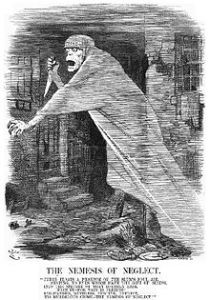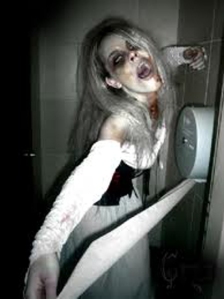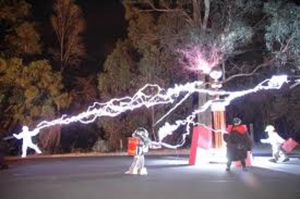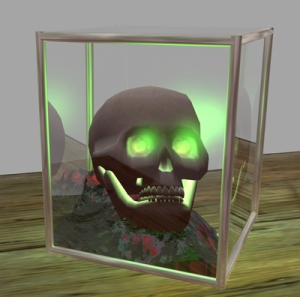Part 2 of my Friday Frights submission for prompt, Psychological Horror. Word count: 2500
The Delicate Fragrance of Violets.
By Robert A. Read
Part 2.
The hostel feels similar to a hotel, although, unlike a place of vacation, we have to work. I have been here for almost three months. There are five residents other than myself, but including the elderly lady who runs the house. From the window of my room, I see narrow streets between tall, dour buildings of grey stone. Like yesterday and many days before, it rains. Not heavy rain, but enough to make one damp and cold; that dreary October drizzle reminding me of cold dark days of winter—the only thing imminent in my future.
My accommodation is twenty miles from the village in which I grew up. I have spent many weeks, now, contemplating the idea of visiting my old home. The thought of seeing my parents scares me. I remember the whipping I received after an hour’s tardiness for a meal. What would be my punishment after all this time, and I can think of no excuse for my absence.
I have continually put off the visit. Now, thought of Violet gives me encouragement. For the past week, I have heard her calling to me in my dreams. Her voice is accompanied by that wonderful fragrance of her flowers. At first, I believed it impossible she could still be living in the village. Now, I am convinced she will be there to greet me. I only wish there was some way I could contact her, but, as I still have no family name or address, such a wish is meaningless.
A single deck bus leaves the market square at ten-thirty each morning on a circuitous route through the surrounding villages. Today, being a non-market day, few people use the public service. The sky is grey and overcast, but no rain, for now. However, I expect it to return before the day is over. As the bus pulls away, I feel a sensation of unease in my stomach. Is it caused by the excitement of making such a venture or trepidation at the possibility of seeing my parents and confronting my past life?
The only registered stop, at which I can disembark from the vehicle, is in the centre of the village. It still leaves me a further half mile to walk to the house I knew as home. The trepidation I feel is almost enough to make me pay the additional fare to travel directly back to the hostel. Doors of the bus whir and hiss to close. My only means of escape leaves me alone and shivering in the dim, fearful surroundings of a past-life I am still unable to recall with clarity.
One main street passes through the village. There are few people to be seen, as I would expect with children in school and many adults at work. Two women pass along the footpath on the far side of the road. The older tugs a leather strap attached to a surly black and white dog, while the younger pushes a small child in a push-chair. Engrossed in their own conversation they make no acknowledgement at my nod of head in greeting.
A sharp bend and several tall trees will prevent me from seeing my destination until I am almost at a brick wall in front of the house. My footsteps slow involuntarily as I negotiate the corner. I am afraid to look. Then I am around the apex of the curve with uninterrupted view.
I stand transfixed. I cannot believe my eyes. There is no house!
Grassy lawns stretch back to the whitewashed walls of two small bungalows. A young man, a stranger to me, is painting a fence that runs along one side of the plot of land. An ivy-covered brick wall had bordered the plot when I lived here. He is unaware of my presence. I watch him for several minutes applying the paint until he turns the corner behind the house and moves out of my sight.
On the opposite side of the road is a small shop—a village grocery store—with, next to it, a thatch-roofed pub called The Royal Oak. A sign on the door of the shop indicates it is closed for lunch. The doors of the pub, however, are open and welcoming. I feel nervous approaching. This will be the first time I have been inside a pub. During the years I lived in the village, my age forbade me from entering. My knowledge is limited to depictions of such establishments on television.
The landlord, like the fence painting man and the two women, is unknown to me. He is a heavily built man with a large, bushy, red moustache and equally red and bushy eyebrows. He wears a yellow waistcoat over a blue shirt with a yellow bow-tie.
He greets me quite enthusiastically, so I request a glass of sweet cider and ask to see a bar menu. The ploughman’s lunch of cheese, pickled onions, fresh-baked bread and salad sounds appetizing, so I place my order. Sitting at the bar on a high stool, waiting for the food, I survey the interior with interest. Electric lighting gives a dim yellow ambiance reflected in the bottles and glassware behind the landlord. Flames from a small, log fire stutter in an open grate opposite the door through which I entered. Several small, wooden tables with accompanying chairs are placed at intervals around the wall. Apart from five more stools like the one on which I sit, the area in front of the bar is empty. The smell of hops in spilled beer that has soaked into the wooden counter, mixed with stale cigarette smoke is strong to my unaccustomed senses.
Two elderly men sit at one of the tables in front of a bay window. They play at cards, the slap, as they lay them on the table, audible above the rustle of a newspaper the landlord is reading and the sound of kitchen utensils coming from a doorway behind him.
My meal finished, I lay the knife and fork together on the plate. The barman responds by taking the plate and asking if the food was to my satisfaction.
“Excellent,” I reply. “I didn’t realize plough-men could eat so well here.”
He chuckles, causing the moustache to twitch beneath his nose. “I take it, you’re not local to this area,” he adds.
I take a deep breath. “Actually, I lived in this village many years ago. I’m here chasing childhood memories.”
He nods his head knowingly, so I continue, “The place has not changed a lot, but I recall a house with a thatched roof on the other side of the road.” I indicate with a small wave of my hand toward the window that looks out onto the road. “Do you know what happened to it?”
He shakes his head. “Only been the two bungalows in the six years I’ve run this pub, but old Tom Chandler may know.” He nods his head in the direction of the card players. “Lived here all his life, in fact, he’s been writing a book on the history of the village. He was collecting old photographs of village life from before the wars and earlier. Hey, Tom! Have you got a minute?”
Of the two, the one with his back to me turns his head. I feel I should recognize the name, Tom Chandler, but like so many other memories, it remains just beyond my grasp.
“What’s up, Arrthurr?” His voice has the slur common to the area, as if he rolls the ‘Rs’ on his tongue like marbles.
“Somebody here asking about a thatch-roofed house across the way. Do you know anything about it?”
“Arrr, yeah.” He replies slowly before taking a deep breath and continuing, “The old McKinley house, they called it. Remember it well.” He shuffles to his feet with the aid of a walking stick, picks up his half empty tankard and meanders toward the bar still talking. “Weird, it was. Really weird. The house burned down. God-awful fire that was. Must have been almost twenty years ago.” He peers at me closely as he approaches, as if his sight is impaired. “I’m surprised you’re old enough to remember,” he adds.
I grin, not too toothily, I hope. “Only just. What happened?”
“Don’t think exact details have ever been known. Most of the stories are mere speculation. I interviewed a lot of people for my book. Did Arthur tell you I have a small book on the village history, just recently been published?”
I nod my head. He continues, “I devote an entire chapter to that event. We don’t have that much excitement here, so it becomes urban legend. Mr. and Mrs McKinley came here from somewhere up north. Lancashire, I think. They had a daughter soon after they arrived. She must have been six or seven at the tine of the fire. She was a strange girl, weird, really weird, she was.”
‘Weird, really weird,’ sounds to me a favourite expression of Tom Chandler’s. I feel a fleeting familiarity with those words, but, like so many others, just beyond my memory.
“I’m trying to remember her name, but…” He screws his face into an expression similar to one I know so well and use when memories elude me too. “I remember standing with Mrs. Adams as we watched her in the school yard.”
My look of surprise must register with him. “Yes,” he continues, “thirty years I was a teacher at the school here. She wasn’t in the years I took. I had the eight to elevens. Margaret Adams took the juniors, the five to eights. Anyway, we used to watch her through the window talking to herself. She never mixed with other children. We suspected she was being abused at home. She often came to school with welts and bruises on her arms and legs. Wasn’t much we could do though. It wasn’t right to get involved in those days, unless a child came to you for help. Even then, we could only notify the school inspectors of our suspicions.
“I remember, it was late August, the night of that fire. We’d had an unusually warm period, so the thatch in the roof was dry. Once that straw catches… well, it’s like an inferno. Mr. Cooper saw the fire. He was landlord of the pub then. He phoned the fire brigade; about two in the morning, that was. No fire brigade in the village, you see. They had to come seven or eight miles, so by that time, it had well taken hold. My aunt had the shop on the corner in those days. She phoned me and several of the lads from the council houses at the other end of the village. We brought buckets, but nothing we could do other than try to keep the flames from spreading to the remaining houses.
“It wasn’t until late morning they had the fire damped down enough to get into the house. Of course, there wasn’t much left by then. We assumed the whole family had perished in the flames, so you can imagine our surprise when one of the firefighters claimed he heard a child sobbing.
“While writing the story, I spoke to both fireman who found the girl, so I have a first-hand account. They both agree in detail. The first said he still has nightmares about the discovery. I don’t think anyone realized the old house had a cellar. Not many homes around here do. Part of the wooden floor had collapsed, which was how they got in. They found her sitting on a filthy mattress against the wall furthest from where the flames had been, which must have been how she survived. One really weird thing though, she was hugging the mummified corpse of a small boy.”
He seems to enjoy emphasising the horror in his narration. Although I hear his words, they make little sense. For a moment, they are only background noise against the muffled roar of flames. I taste the bitter smoke, like tar, filling my lungs. While I cower from the intense heat, I listen to the horrifying screams of my beloved Violet as she hugs me.
I only dimly perceive as the man continues to recount his story. “The coroner said the boy had been dead for about ten years. Police records from Blackburn, Lancashire, showed him as being the McKinleys’ first-born, Stephen McKinley. He disappeared, couple of years before they moved down here. That was the time of the infamous ‘Moors Murders’, so he was suspected to be another, never-found victim of child killers, Ian Brady and Myra Hindley.
“Anyway, his death was not by natural causes. Several fractures of the skull showed he had been beaten about the head. The police suspected child abuse by one or both parents, but with them now dead, it could only remain as suspicion. The girl was no witness, being born several years later, although her appearance at school supported the notion of abuse. How she found, or how long she knew about the lad’s body, no one knows. She was put in a welfare home, but I’m not sure what happened to her after that. My research for the book met a big, fat nothing. Perhaps she died, or, maybe she was given a new identity. Dammit! Wish I could remember her name.”
I have a feeling of surreality, as if this is a dream, as if nothing here is real and that I am watching characters portrayed in an old, black-and-white film. Who am I? I cannot remember my name or why I came here.
An old paraffin heater stands against the wall in the kitchen on the far side of the cellar door. The smell of spilled paraffin is overwhelming as I tip the heater on its side. Just one lighted match and he will regret what he did to Violet. The box of matches is kept in a drawer of the kitchen table. The drawer screeches too loudly as I pull it open, but I don’t think anyone heard.
If you’re interested, and you’d like a copy of the book, you could take it and read at your leisure.”
I realize Tom Chandler is still talking to me. Perhaps I nod my head, for he turns his attention to the man standing behind the bar. “Do you still have a couple of copies, Arthur?”
Then he is waving a slim paperback in front of me. “I’ll even sign it for you.” He speaks smugly, “What is your name?”
I have difficulty forming the words. The emotion of realizing, after all these years who Violet was, has rendered me speechless. I take from the inside pocket of my raincoat a card in a clear plastic envelope. It must be carried with me at all times in case of emergency. Beneath my name, it lists the medications I take and the contact details of the doctors who prescribed them.
He peers at the card for a moment, then looks at me before opening the book and scanning through several pages. “I’m sorry. I didn’t know,” he says. He takes a pen and scribbles some words on the inside cover before handing the book to me. Beneath the title, in blue ink, he has written:
To: Violet McKinley.
Deepest sympathy for the tragic loss of your family. May God grant you the strength to forgive and forget.
Tom Chandler. Author – October 1992.
Author's note: This story is intended to reflect my
greatest psychological horror, of waking in a hospital
with no memory of who I am or why I am there.



